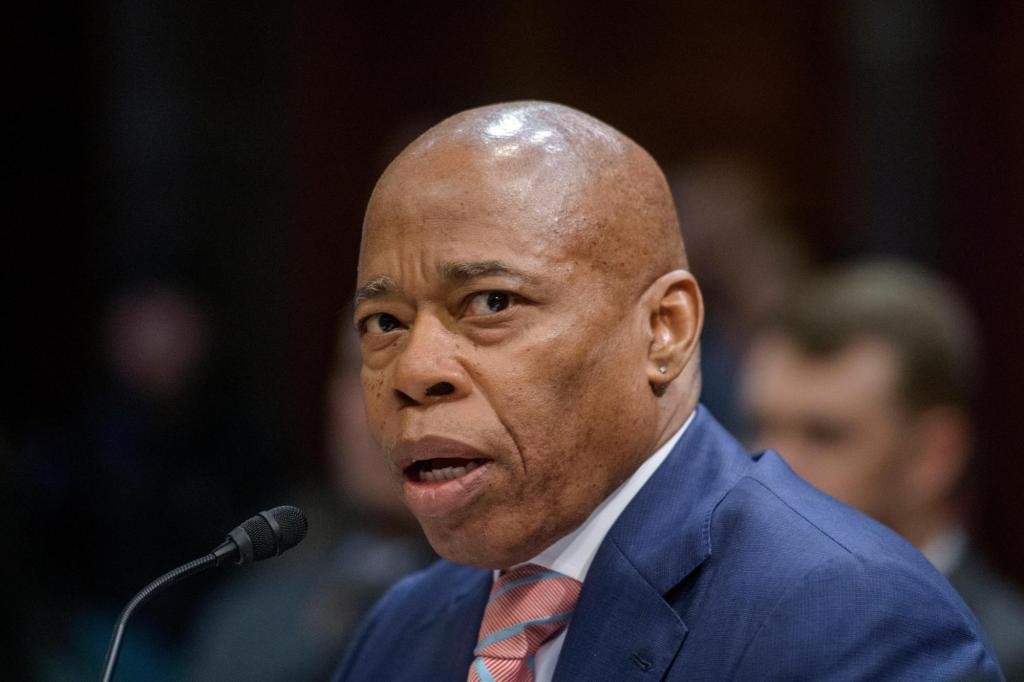Title: Judge Dismisses Corruption Charges Against Mayor Eric Adams: A Look at the Case and Its Implications
In a significant legal development, a federal judge has permanently dismissed the public corruption charges against New York City Mayor Eric Adams. This decision, made by Manhattan Federal Judge Dale Ho, concluded an attempt by Trump’s Justice Department to have the case dismissed “without prejudice,” a move that would leave the door open for re-indictment in the future. Rather than evaluating the merits of the allegations or determining the Mayor’s innocence or guilt, Judge Ho focused on the nature of the dismissal itself. The Mayor’s legal team successfully argued for a permanent dismissal, opposed to the Justice Department’s bid, resulting in a significant legal victory for Adams amid swirling accusations.
The backdrop of the case is marked by the controversial timing of the Justice Department’s intervention, which came shortly after Donald Trump took office. Notably, Emil Bove, a former defense attorney for Trump turned Justice Department official, sought to dismiss the charges against Adams citing the need for his cooperation with Trump’s stringent immigration enforcement priorities. Critics voiced serious concerns regarding this perceived quid pro quo arrangement, suggesting that the Mayor risked compromising New York City’s immigrant communities for political gain and self-preservation. Adams faced vehement critique for his cooperation with Trump’s administration, further intensified after an appearance on “Fox & Friends” alongside Trump’s border czar.
The controversy escalated when Danielle Sassoon, the interim head of the Manhattan office of the U.S. Attorney, resigned in protest over the order to dismiss the case. Sassoon’s resignation letter outlined her preparations to pursue additional charges against Adams for supposedly trying to obstruct justice and lying to the FBI. Her claims highlighted a troubling narrative of a transactional relationship between the Mayor and the Trump administration, further spotlighting the ethical dilemmas facing public officials. While advocating for transparency, Sassoon’s resignation signaled a deep division within the Justice Department regarding the handling of the case.
Adding to the turmoil, several Justice Department employees, including senior prosecutors, expressed their dissent by resigning. One of these resigning prosecutors, Hagan Scotten, articulated a fervent condemnation of the Justice Department’s actions in his resignation letter. He argued that the prosecutorial power should not be wielded to influence elected officials or ordinary citizens, making clear his disapproval of the tactics being employed. Scotten’s statements echoed the growing unease within certain legal circles about the politicization of the Justice Department and the integrity of its prosecutorial decisions.
Adams’s legal troubles stem from serious allegations made by a federal grand jury, which accused him of various corrupt activities, including bribery and wire fraud. These serious accusations painted a picture of a politician willing to sell his political influence in exchange for luxury travel and campaign contributions from foreign nationals. The indictment specifically detailed how Adams allegedly collaborated with wealthy Turkish officials to secure illicit campaign donations, raising questions about the ethical conduct of elected officials. Moreover, a guilty plea from Brooklyn real estate magnate Erden Arkan and a related plea from a former aide reinforced the notion that there was evidence supporting the case against the Mayor prior to the Justice Department’s intervention.
Ultimately, the case underscores the intersection of politics, justice, and ethics in contemporary governance. The ruling by Judge Ho to dismiss the charges permanently signals a potential shift in the legal landscape, prompting discussions about the integrity of the prosecutorial process and the implications of political influence over legal proceedings. Despite the resolution of the charges, questions linger about the future conduct of public officials and the extent to which political interests may sway judicial actions. The controversy surrounding Mayor Adams serves as a potent reminder of the ongoing challenges faced in safeguarding the integrity of public office and ensuring accountability among those elected to serve the interests of their constituents. As the dust settles on this case, the implications for both local and federal governance will continue to unfold, prompting further scrutiny of the relationship between politics and the legal system.





